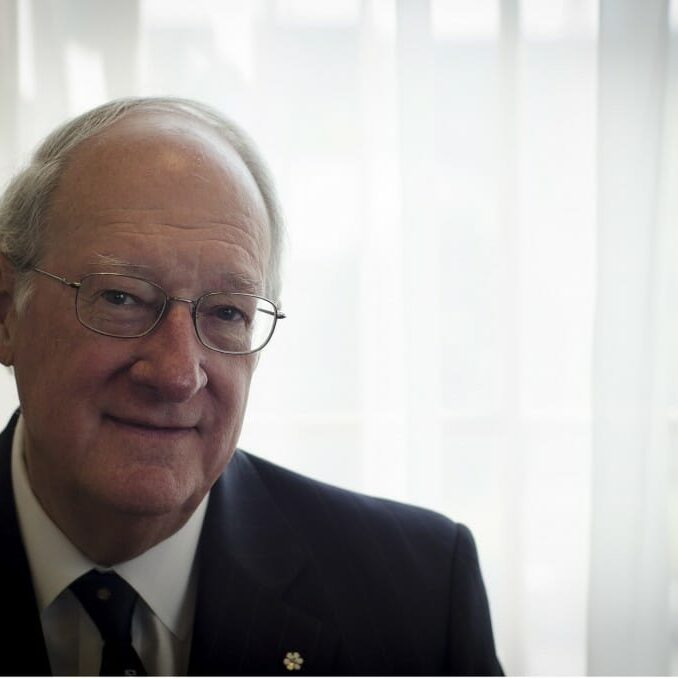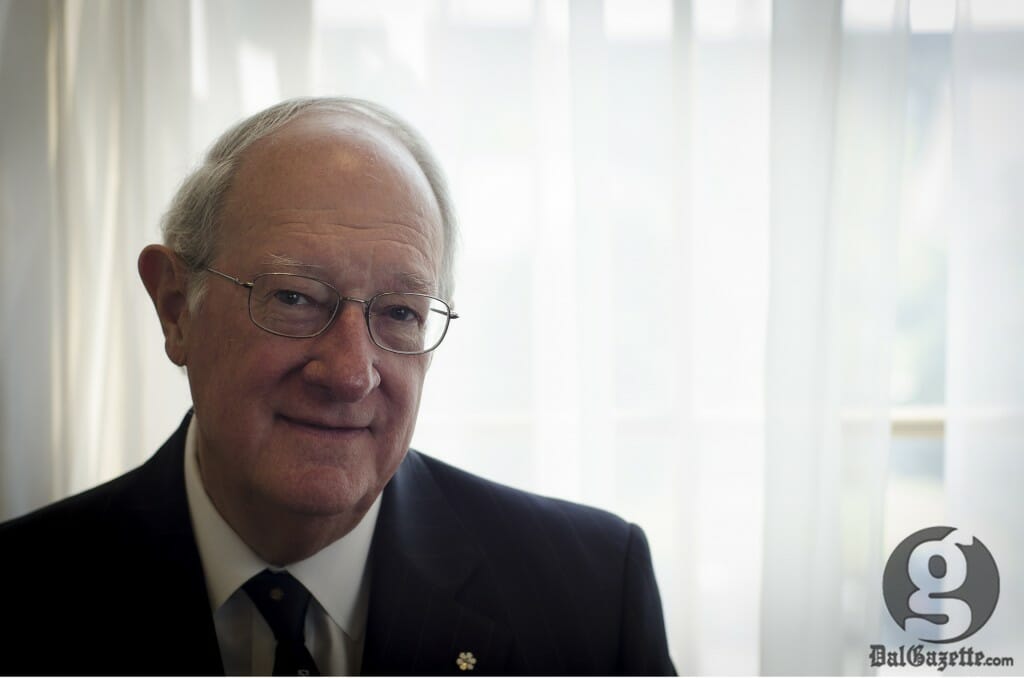
Students at the King’s College returned this fall to a surprise change in staff, discovering the newly sworn in president, Anne Leavitt, to be long gone.
Leavitt resigned in June, having served only eleven months of a four year term.
The board chose to appoint an interim president, who will serve a two year term, while a full-time appointment is found. Two candidates were immediately identified from within the college: Neil Robertson, a professor with the Early Modern Studies programme; and George Cooper, current vice-chancellor and former chairman of the Board of Governors.
In addition to serving as interim president, Cooper is a managing trustee of the Killam Educational Trust, a director at the CBC, and counsel at the law firm that bears his name, McInnes Cooper.
“I’m familiar with how these things work and I’m fortunate to be able to do this now”, says Cooper of his recent appointment.
“I think that Dr. Leavitt’s resignation was in her best interest,” said Stephanie Duchon, student union representative on the Board, “and I believe the university will do well with the appointment of interim president Dr. George Cooper.”
Cooper may not have been the popular choice. Some members of the King’s community publically endorsed Robertson, including former president of the King’s Student Union, Gabe Hoogers.
“We had our own hopes,” says Nick Stark, current KSU president, “but what it comes down to is that Dr. Cooper is going to do a great job. He wasn’t our ideal candidate, but that’s not to say he not going to do an excellent job. Because I think he probably will.”
The university is faced with expensive repairs in the near future, including fire escapes in the Pit, the school’s makeshift theater space, and the Chapel. The Presidents Lodge, which is currently unlivable, also needs work on its wiring and other issues. On top of those repairs are the ongoing renovations to the campus bar, the Wardroom.
“I don’t want to understate our financial position, because there are some problems, for sure,” says Stark, “But I think Dr. Leavitt actually overplayed that. I’m pretty optimistic that we’ll be able to handle the challenges we have, because compared to some other universities, we’re not doing so bad.”
Cooper agrees. “We actually came in on budget last year,” he says.
“We’re in good shape, financially. I mean, we’re doing better than some universities, worse than others, but we’re roughly where everyone is. We’re not in any strange position.”
Many agree, with the change in presidents offering the student body a fresh start and new opportunities to work towards something.
Leavitt’s predecessor, William Barker, was known for being very approachable. Leavitt, while working for the school’s best interest, did not build up the same rapport with the students in her much shorter tenure.
“I think Dr. Leavitt’s term will be remembered differently by the different constituents at King’s,” says Duchon. “I think it was a lesson to the students in recognizing that if we work well with the administration we can make good things happen for the wider community and vice-versa.”
Cooper hopes to improve the financial health of the university without removing himself from the community, remaining open minded to talking about issues like tuition hikes and the budget with the student body.
“I think we just have to manage as best as we can while moving forward. It’s not my choice as president, holed up in my ivory tower, to raise or lower tuition,” he says.
“That’s something we have to compromise on and agree on as a community, finding an amount we can agree on that is manageable for the ones paying while covering the costs of the university.”
The president has so far, in his short summer term, met with faculty, friends of the university, administrators, and students.
“I’ve only been president for about six weeks at this point but I’d say that my first act has been to keep my ears open. So far, I think it would be safe to say that I’ve been to 65 meetings. Even tonight, I’m meeting with Nick Stark to talk over a beer and a bite downtown.”
Part of his role as interim president will be to help lay the groundwork for a fundraising campaign. While Cooper was the chair of the Board, the New Academic Building, fondly referred to as the NAB, was funded and built. And he was on the board during the campaign for the King’s library.
“A capital campaign requires a strategic plan. We need to sit down together and decide where we want to be in five, 10, 15 years intellectually. As a community, we need to figure out what we want to be when we grow up,” says Cooper.
When asked which president he’ll be more like, Leavitt or Barker, Cooper laughed and replied, “Well, let’s put it like this. I like beer and I like young people, so it’s safe to assume that I’ll be in the Wardroom a lot.”







